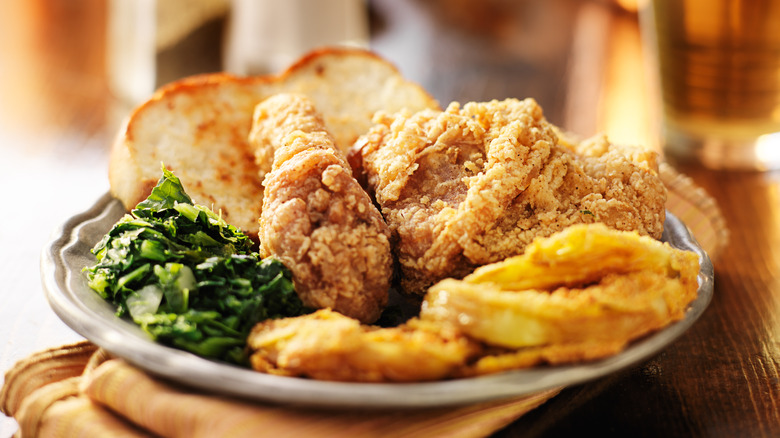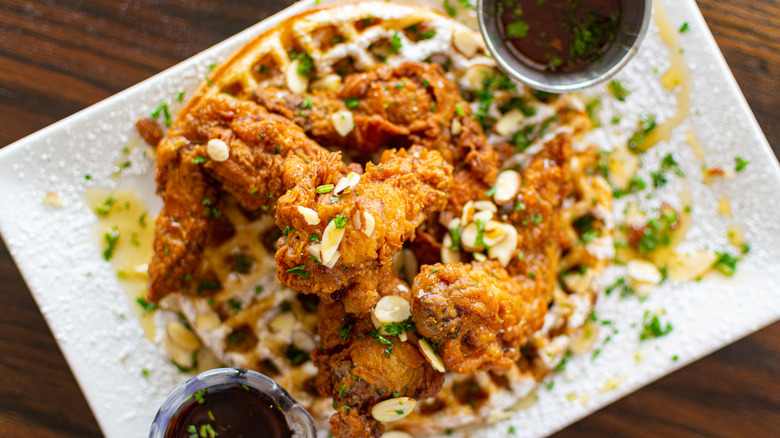How Soul Food Got Its Celebratory Name
Whether you love buttermilk fried chicken or shrimp and grits, pork-stewed collard greens or starchy black-eyed peas, towering banana cream pie or cream cheese-frosted hummingbird cake, we think we can all agree: Soul food sure has a lot to offer the palate and the spirit. There are many ingredients, cooking methods, and recipes typically associated with the American South. According to Britannica, the term "soul food" encompasses much more than just a set of ingredients and common preparations but nods to the pride embedded in these iconic dishes historically prepared by Black hands.
As fundamental a part of the Black American culture as soul music, the outlet writes, soul food acquired its moniker beginning in the early 1960s when Black artists, musicians, scholars, and writers across the country began to embrace their heritage in a new and bolder way. As noted by chef and cookbook author Alexander Smalls in an article for The Spruce Eats, in that era, the descriptor "soul food" took its place alongside similar terms such as "soul music" and "soul brother/sister" as a way for the Black community to truly claim ownership of the important foodways and techniques popularized throughout the South, often by way of the painful legacy of slavery.
Soul food is more than just Southern food
So what's the difference between Southern food and soul food? Both terms refer to iconic Southern dishes such as flaky biscuits and peach cobbler, but whereas "Southern food" is solely a geographic descriptor, notes Alexander Smalls, the term "soul food" explicitly connects to the legacy of Black traditions behind these beloved dishes. "Much like Mr. Dynamite's affirming proposition, 'SAY IT LOUD! I'm Black and I'm proud,' Black people began to use the term 'soul food' with great pride and allegiance to Black culture," Smalls writes (via The Spruce Eats). "Black folks saw it as a tool of ownership and empowerment ... like a badge of courage."
Given that many Southern dishes came into the region by way of West African slaves who brought ingredients such as okra, yams, and black-eyed peas (via Voices of America), the term also became a way to explicitly highlight — and transmute — that dolorous legacy. While white cooks and chefs can certainly turn out a delicious rendition of, say, gumbo, the dish might lack the "bold, intense flavoring and excitement that haunted the food Black people made ... because it had no soul," Smalls writes.
Language, of course, has its limits, and the lines between "Southern food" and "soul food" can and do sometimes blur. But at the heart of the latter term is the pride and the joy infused into delicious Southern food, which came by way of generations of experience in the kitchen.

